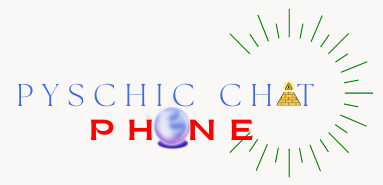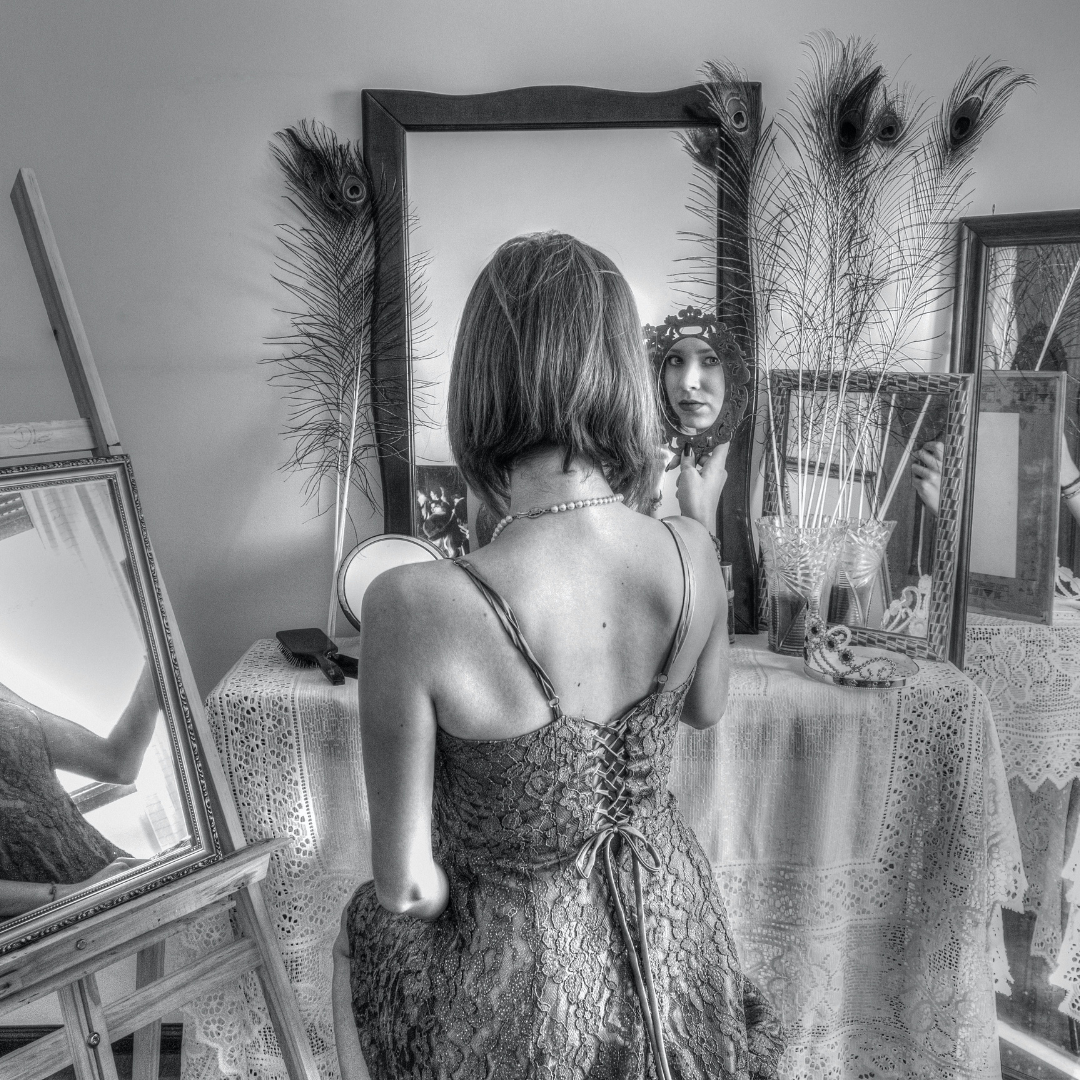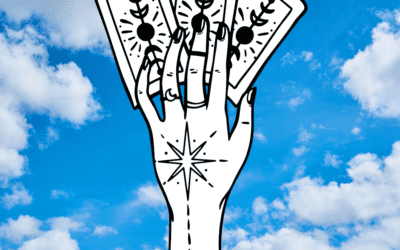Deja Vu: Experience the Thrill of Rediscovering
Have you ever experienced a sudden feeling of familiarity in an unfamiliar place? It's a strange yet thrilling sensation that leaves us questioning the reality of our experiences. This phenomenon, known as Deja Vu, has baffled philosophers and psychologists alike for centuries. But what exactly is Deja Vu? How does it work and why does it happen? In this article, we will explore the mystery of Deja Vu and the thrill of rediscovering what we already know.
Deja Vu is often described as feeling like you've ‘been there before'. We can experience it when visiting a new place or even hearing a familiar phrase from someone we don't know. Many theories have been proposed to explain this phenomenon, including the theory that we are living in a multiverse with parallel realities. However, despite its mysterious nature, Deja Vu is something that almost everyone has experienced at least once in their lives.
So what makes the experience of Deja Vu so thrilling? It's not just about being able to relive a moment; it's about discovering something new about ourselves and our perception of reality. By understanding how Deja Vu works and recognizing our own unique experiences with it, we can gain insights into our deeper selves and the world around us. Join us on this journey as we uncover the secrets behind De javu and experience the thrill of rediscovery!
Deja Vu Definition
Deja Vu is a French phrase that translates to “already seen”. It is an odd experience in which one feels they have already experienced something, even though they have not. This phenomenon occurs suddenly and unexpectedly, leaving the individual feeling confused and disoriented.
The definition of Deja Vu varies between individuals, but it generally involves a sense of familiarity with a person, place, or situation despite never having experienced it before. In some cases, it can feel like a dream or memory of something that has not happened yet.
Though the exact cause of Deja Vu remains unknown, many theories have been put forward to explain the phenomenon including false memories, mental time travel, and déjà vécu (having already lived through something). Despite its mysterious nature, Deja Vu continues to fascinate researchers and everyday people alike. There is no denying the thrill of recognizing something that you thought was new as being familiar instead.
Causes Of Deja Vu
The causes of deja vu are still largely unknown, but there are a few theories that have been proposed. One theory suggests that it is caused by a disruption in brain chemistry. This disruption is thought to be related to the temporal lobe, which is responsible for memory formation and cognitive processes. This disruption can lead to a person recalling past experiences in a distorted manner.
Another theory suggests that deja vu may be caused by an overlap between current and past experiences. For example, when someone visits an unfamiliar place and has the feeling that they've been there before, it could be because they're subconsciously recognizing similarities between their current environment and something from their past.
In some cases, deja vu may simply be the result of a misfiring of neurons in the brain. These misfires can cause people to have brief episodes of confusion where they think they've experienced something before, even though it's new to them. Whatever its source may be, deja vu remains an intriguing phenomenon that continues to fascinate psychologists and laypeople alike.
Frequency And Duration
Frequency and duration are key elements when discussing deja vu. Research suggests that the frequency of deja vu can vary from person to person, with some experiencing it more often than others. It has been suggested that the recurrence rate is usually around one or two times a year for most people, though this can vary depending on individual experiences. On average, the frequency of occurrence tends to be higher in younger individuals than in older ones.
The length of feeling associated with deja vu also varies greatly between individuals. Generally speaking, it typically lasts only a few seconds, but there have been instances where people have reported feelings lasting up to several minutes. In addition, those who experience deja vu more frequently tend to report shorter durations than those who experience it less often.
Overall, the frequency and duration of deja vu are highly variable and can differ greatly from one person to another. As such, it is important to note that what may be true for one individual may not necessarily be true for another when it comes to these aspects of deja vu.
Neurological Explanations
As we look beyond the frequency and duration of deja vu experiences, it is important to explore the neurological basis of these strange moments. Studies have shown that changes in one's brain activity can be linked to episodes of deja vu. Specifically, the temporal lobe, hippocampus, and other areas of the brain related to cognitive function have been identified as having a role in deja vu experiences.
The temporal lobe is located near the bottom of the brain and is involved with memory formation, recall, organization, and much more. The hippocampus also plays an important role in memories and learning. When these two areas are not functioning properly or do not communicate effectively with each other, this could lead to a disruption resulting in a feeling of familiarity with an event or situation that someone has never experienced before.
These studies indicate that there is a neurological explanation for why people may experience deja vu phenomena. It appears that disruptions in the communication between different areas of the brain can lead to feelings of recognition even when they have never seen something before. Understanding this connection may help us better understand what causes deja vu and how we can prevent it from happening in certain situations.
Psychological Explanations
The sensation of deja vu is often associated with psychological causes, particularly when it occurs in healthy individuals. Neuropsychological research suggests that temporal-lobe involvement may be an underlying factor of deja vu experiences. Cognitive factors such as memory recall, familiarity, and state-dependent memory are thought to constitute the psychological aspects of this phenomenon.
Scientists have proposed theories that suggest that, during a deja vu experience, some kind of interference occurs in the brain which impairs our ability to recognize the memory. As a result, we experience feelings of familiarity and recognition, yet can’t remember why or how we know what we know. This suggests that the phenomenon may be related to how our brains process familiar elements from the environment.
Research has also identified certain personality traits which may play a role in experiencing deja vu more often than others. People who are more open to new experiences or imaginative tend to experience this phenomenon more frequently than those who aren’t as easily suggestible. It appears that people who possess these personality traits may be more likely to receive false signals from their brains regarding memories they have previously experienced.
Deja vu is an intriguing and mysterious sensation that continues to elude scientific explanation despite ongoing research efforts. While neuropsychological, psychological causes, cognitive factors, and state-dependent theories have been proposed, further evidence is needed before the full picture of this phenomenon can be understood.
Memory Recall Theories
At the heart of memory recall theories are cognitive psychology. This field of study looks at how people perceive, process, and store information. It investigates how one can increase their ability to remember and recall information by employing a variety of mnemonic strategies.
Episodic memory is an important aspect of memory recall theories. This type of memory refers to the recollection of autobiographical events which are stored in long-term memory. It allows us to re-experience past events and emotions, making it easier to remember them in the future. An example of this is flashbulb memory, which refers to memories that are particularly vivid and detailed due to their emotional significance.
The psychological explanations discussed earlier have helped us understand why we forget things, as well as the importance of mnemonic strategies in enhancing our ability to remember and recall information. Memory recall theories provide us with insight into how we can use these strategies effectively so that we can experience the thrill of rediscovering what we have forgotten.
Parapsychological Explanations
Parapsychology is the study of paranormal and psychic phenomena, such as telepathy and precognitive dreams. This field of inquiry has been around for centuries, but it has only recently gained more attention due to advances in scientific research. Generally speaking, parapsychological explanations are based on two theories: telepathy theory and clairvoyance theory.
Telepathy theory suggests that people can communicate with one another without speaking or using any other physical means. It is believed that this ability is rooted in the subconscious mind, which can pick up signals from another person’s thoughts or feelings. This type of communication has long been considered a feat of psychic power, but recent studies have shown that it may actually be a real phenomenon.
Clairvoyance theory posits that some people possess the ability to “see” events that have yet to happen. Proponents of this idea suggest that individuals can access information from the future by tapping into their unconscious minds or by reading energy patterns in their environment. While there is no conclusive evidence to back up these claims, many believe that precognitive dreams are just one form of clairvoyance.
Parapsychology continues to challenge our understanding of the world around us and provide insight into how we interact with one another on an unseen level. As research continues to progress in this area, we may eventually uncover new insights into how our minds work and uncover even more mysteries about the unknown.
Stress And Deja Vu
The phenomenon of deja vu has perplexed and intrigued people for centuries. While parapsychological explanations have been suggested, it is also possible that stress and anxiety may play a role in the experience. It is plausible that when one is feeling particularly stressed or anxious, they may experience a certain level of dissociation from reality, leading to sensations of familiarity even in new situations.
Stress and anxiety can be caused by many factors such as work, relationships, or environment. When these feelings become overwhelming, it can lead to a form of dissociation from the present moment which can cause deja vu. This might happen due to the body releasing hormones like cortisol which increase arousal and alertness levels. This heightened awareness combined with an inability to concentrate on the present can make it difficult for someone to recognize their current surroundings, leading them to feel as though they’ve experienced them before.
It is important for those who suffer from anxiety and stress-induced deja vu episodes to learn how to manage their symptoms. This could include speaking with a therapist or trying relaxation techniques like yoga or meditation. Taking time out each day to focus on self-care can also help reduce stress levels and lessen the sensations of deja vu that are associated with it. Taking care of one's mental health should always be a priority in order to prevent further episodes in the future.
Drugs And Deja Vu
The experience of deja vu is often associated with the use of psychotropic drugs, hallucinogenic drugs, and psychedelic drugs. These types of drugs can alter one's perception of reality, leading to an altered state in which the user may experience vivid visuals, strong emotions, and sensations that appear to be familiar. In some cases, people who take these types of drugs report having feelings of déjà vu or seeing things that they have encountered before. While this phenomenon can be intriguing, it is important to note that taking any type of drug should always be done with caution and professional guidance.
In addition to recreational substances, certain therapeutic drugs or antidepressant medications can also induce a sense of deja vu. Some patients report experiencing a feeling of familiarity when starting a new medication regimen or when adjusting dosages. It is not yet known if this is related to the effects of the drug itself or if it is simply due to the patient's expectations about what will happen as a result of taking the medication. Regardless, it is important for patients to speak with their doctor about any unusual side effects they may experience while taking these types of medications.
The concept of deja vu has been extensively studied from both scientific and psychological perspectives, although its exact cause remains unknown. Researchers have suggested various theories related to memory recall and brain chemistry, but most agree that further study is needed in order to better understand this phenomenon. As such, more research is necessary in order to gain insight into how drug use can impact our experiences and why some people seem more prone to experience it than others.
Sleep And Deja Vu
Having discussed the effects of drugs on deja vu, it is equally important to consider the connections between sleep and deja vu. Sleep-deja-vu can be experienced in different ways, including during sleep paralysis, dreaming, sleepwalking, and lucid dreaming.
Sleep paralysis is a phenomenon in which individuals are conscious but unable to move while they are sleeping. This often results in the feeling of being held down or the presence of an unknown figure in the room. This type of sleep-deja-vu has been reported by many people throughout history, with some even claiming that it is caused by supernatural forces.
Dreaming is another form of sleep-deja-vu. It involves vivid dreams that may seem real and familiar. Some people have also reported feelings of familiarity when they experience recurring dreams. Additionally, some individuals have claimed to have dreamed about events that later come true.
Finally, there are two other types of sleep-related deja vu – sleepwalking and lucid dreaming. Sleepwalking occurs when a person moves around in their sleep without being conscious. In contrast, lucid dreaming allows the dreamer to be aware that they are dreaming and take control of their environment within the dream state – this often involves experiencing memories or emotions similar to those experienced when awake.
Overall, there are various ways in which sleep can influence deja vu experiences. From experiencing strange phenomena during sleep paralysis to controlling one's own environment while lucid dreaming, understanding how these different states interact with deja vu can help us better understand our own experiences with this phenomenon.
Spirituality And Deja Vu
Spirituality and deja vu are often intertwined. Deja vu is a mysterious feeling of recognition that can come without warning and leave just as quickly. It can be an intense and profound experience, one that some people describe as a mystical or religious experience. Many believe that deja vu is evidence of the supernatural, a reminder from the universe to take notice of something important.
The idea of spirituality in relation to deja vu has been around for centuries. Ancient texts talk about the feeling of being connected to something greater than ourselves, which could be interpreted as a spiritual awakening brought on by deja vu. This connection with the divine could explain why so many people feel a sense of awe when they experience deja vu. The feeling that something greater than us is at work can be both comforting and awe-inspiring.
Whether it's evidence of the supernatural or simply our brain's way of recognizing patterns, it's clear that there's something special about experiencing deja vu. It encourages us to look beyond the mundane and recognize that life is full of surprises and wonders waiting to be discovered. With each occurrence, we have the opportunity to reclaim those moments and reconnect with ourselves in ways we never thought possible before.
Techniques For Achieving Deja Vu
Achieving deja vu can be a thrilling experience, and there are several techniques that can be used to create or recreate it. The first technique to try is meditation. Meditating often helps us to relax and become more in tune with our surroundings, which increases the likelihood of experiencing deja vu. Another technique for inducing deja vu is visualization. Visualizing a scene from a dream or an event from your past can help you relive it and experience deja vu. Lastly, repeating activities from the past is another way to recreate the feeling of familiarity associated with deja vu. For example, if you had an enjoyable vacation experience in the past, going back and visiting that same place could trigger a sense of deja vu.
In addition to these techniques, there are also some lifestyle changes that can increase your chances of achieving deja vu. Eating healthy foods and exercising regularly can help you stay mentally alert, which will make it easier to recognize situations or places that you’ve experienced before. Additionally, setting aside time for relaxation and reflection each day may lead to experiences of déjà vu as well.
Being open-minded and embracing new experiences can also help create feelings of familiarity when they arise again in the future. When something feels familiar even though we don't consciously remember it happening before, this is what triggers déjà vu experiences. Therefore, by being curious about the world around us and embracing life's surprises, we may find ourselves suddenly experiencing déjà vu more often than before!
Experiencing The Thrill Of Rediscovery
The thrill of rediscovery is something that many people have experienced, whether it be through deja vu or a time-slip experience. It's a sensation of familiarity and sudden recognition that can be both exciting and unsettling. In this section, we'll explore how to experience the full effect of the thrill of rediscovery.
First, it's important to remember that when experiencing the thrill of rediscovery, it is not necessary to recognize all the details in order for it to be an intense moment. Instead, focus on what feels familiar and allow yourself to savor the feeling of being in a place you've been before. To further enhance the sensation, try adding some detail or context to your experience such as visualizing yourself in a certain setting or imagining yourself interacting with someone you haven't seen in years. This will help bring your memory back so that you can fully relish at the moment.
Finally, take some time each day to reflect on your experiences and practice being mindful of any deja vu sensations you encounter. Pay attention to how these moments feel and make sure you savor them as much as possible. By doing this, you can truly appreciate the thrill of rediscovering something from your past and become more aware of the unique moments in life that bring us joy and peace.
Benefits Of Experiencing Deja Vu
Experiencing deja vu has a variety of benefits that can positively impact one's mental and emotional well-being. For starters, it can bring about mental clarity. By reflecting on the sensation and its implications, we can gain deeper insight into our actions, thoughts, and feelings. Additionally, it can serve as a creative stimulus – allowing us to explore our minds in ways we haven't before. Furthermore, it can provide us with a spiritual connection – enabling us to feel more connected to something greater than ourselves.
Moreover, encourages mindful awareness – allowing us to take stock of our current situation and reflect upon its meaning. This heightened sense of awareness helps us gain emotional insight into our lives and relationships – providing valuable perspectives that are often lost in day-to-day living.
Overall, deja vu is an incredibly powerful experience that allows us to gain a meaningful understanding of ourselves and the world around us. It is an opportunity to pause and consider why certain things have come full circle in our lives and what purpose they may serve in the future. By embracing this phenomenon, we are better able to foster mental clarity, emotional insight, creative stimulus, and spiritual connection in our lives.
Long-Term Effects Of Experiencing Deja Vu
Experiencing deja vu can have a variety of long-term effects, both psychological and neurological. In some cases, the effects may be positive, and in others negative. It is important to understand these effects in order to properly manage and cope with any issues that may arise from experiencing deja vu.
Psychological effects of experiencing deja vu can range from feeling uneasy or anxious about the experience to a feeling of joy or excitement. Some people may also feel overwhelmed by the experience, while others may find it comforting. It is important to remember that no matter what emotions are evoked by the experience, they should be acknowledged and addressed in order to ensure a healthy mental state.
Neurologically speaking, there are several potential long-term effects of experiencing deja vu. One possible outcome is an increase in memory recall which could result in improved cognitive performance. Other neurological implications include increased brain activity as well as decreased stress levels due to the calming effect of the experience. Additionally, some studies suggest that experiencing can lead to increased creativity as it can open up new pathways for creative thought.
Overall, understanding all aspects of experiencing deja vu is essential for managing any potential psychological or neurological effects associated with it. By recognizing and addressing any feelings evoked by the experience, individuals can gain insight into themselves and potentially improve their overall mental health and well-being in the long run.
Conclusion
To conclude, experiencing deja vu can be an exhilarating experience. It's fascinating to feel as though one has encountered a situation before that can bring with it a sense of comfort and familiarity, even if just for a moment. It's something that most of us have experienced at least once in our lives, but for some people, it happens more frequently than for others. The causes may be neurological or psychological, but the effects are always the same – a feeling of being connected to something greater than ourselves.
I hope this article has helped you understand the phenomena of dejavu a little better and perhaps even inspired you to explore it further. Experiencing deja vu can bring great joy and enlightenment, and I'm sure many will agree that it is an invaluable part of life. Even if we don't know why or how we experience deja vu, it's still something worth exploring and enjoying.
So go ahead – take the plunge into the wonderful world of rediscovery! Who knows what secrets you'll uncover? All I know is that when I experience, I feel as though I'm experiencing something special and unique to me – something that nobody else could ever replicate or understand. That's what makes it so thrilling!

What is the meaning of deja vu?
The term “deja vu” refers to the feeling of having already experienced a current situation, even though it is unlikely or impossible. It is often described as a sense of familiarity or recognition that cannot be attributed to any specific memory.
Why do we experience deja vu?
The exact cause of deja vu is not fully understood, but it is believed to be related to memory and perception processes in the brain. Some theories suggest that it may be triggered by a mismatch between current sensory information and stored memories, resulting in a feeling of familiarity.
Is deja vu a form of time travel?
No, deja vu is not considered a form of time travel. It does not involve physically traveling back in time or accessing past events. Rather, it is an anomalous mental phenomenon where an individual feels like they have previously experienced something that is happening in the present.
Can deja vu be prevented or stopped?
There are no known methods to prevent or stop experiencing deja vu. Since its exact cause remains elusive, there are no specific strategies or interventions that can reliably eliminate this phenomenon.
Is deja vu common?
Yes, experiencing occasional instances of deja vu appears to be relatively common among individuals. Studies suggest that approximately 60-70% of people have reported experiencing at least one episode of deja vu in their lifetime.
Can stress trigger episodes of deja vu?
While stress has been suggested as a potential trigger for some individuals, the relationship between stress and deja vu remains unclear and requires further research for definitive conclusions. Some anecdotal evidence suggests that high levels of stress may increase the likelihood or frequency of experiencing this phenomenon.
Are there any medical conditions associated with frequent episodes of deja vu?
Certain medical conditions such as epilepsy have been linked with an increased prevalence of recurring episodes of intense deja vu. However, it is important to consult with a healthcare professional for a proper evaluation and diagnosis if you are concerned about frequent or disruptive episodes of deja vu.
Acey Tia is a professional Psychic and Wig Specialist with over 10 years of experience in the beauty and metaphysical industry. She specializes in intuitive readings and wig styling.
Acey Tia has a passion for helping others and enjoys providing guidance and insight to those seeking clarity and understanding. With her knowledge and expertise, she is dedicated to providing her clients with the best possible services in order to help them achieve their desired results.






0 Comments